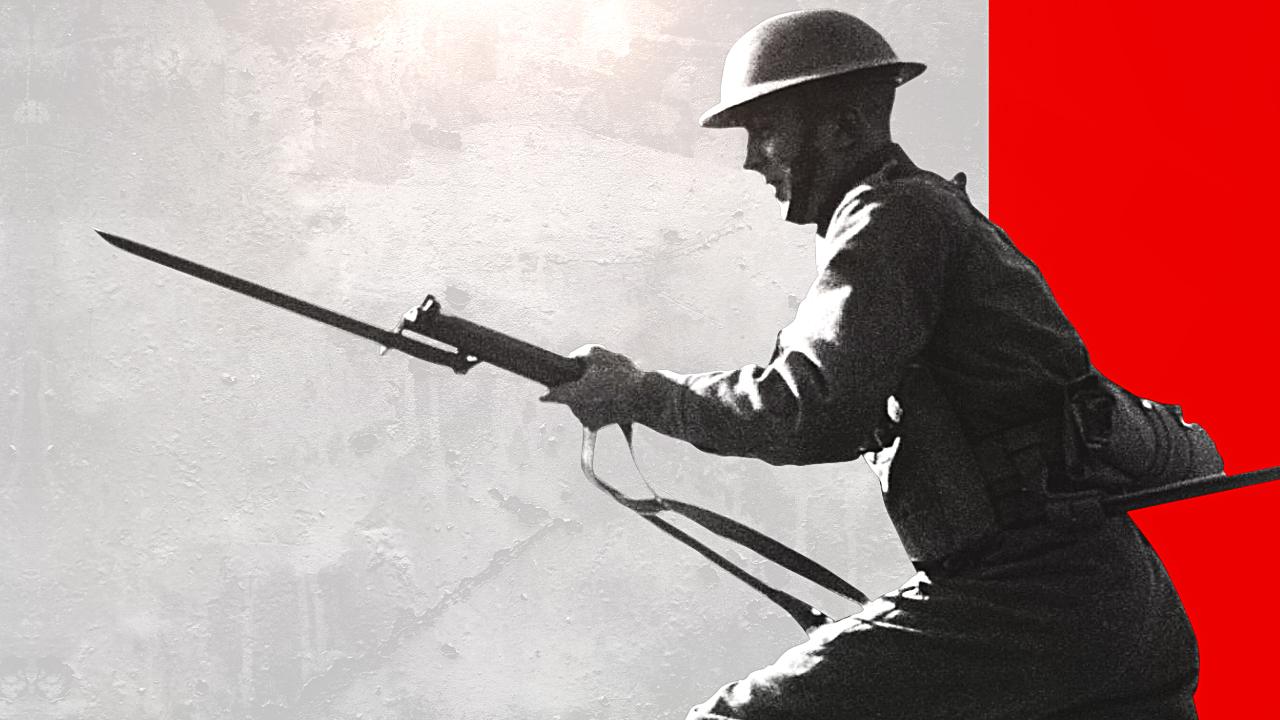Portsmouth World War Two veteran recalls HMS Barham attack
- Published
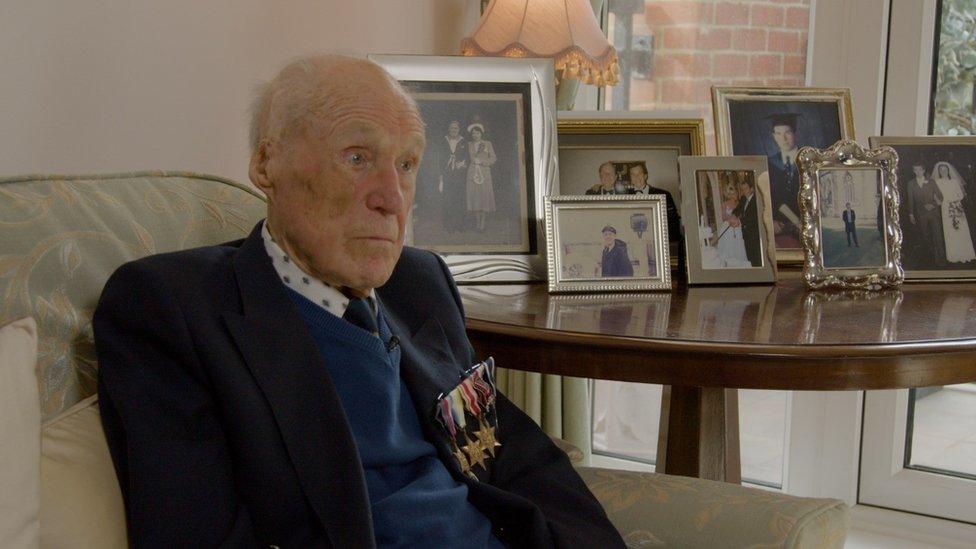
Len Chivers signed up to join the Royal Navy a week before turning 16
A Royal Navy veteran has described witnessing one of the worst tragedies of World War Two.
The attack on HMS Barham by a German U-boat in November 1941 cost the lives of more than 860 British sailors.
Len Chivers, 99, from Portsmouth, Hampshire, witnessed the sinking of the battleship from HMS Queen Elizabeth in the Mediterranean.
He recalled that he went out on deck and saw "an enormous pool of smoke" before the vessel exploded.
The sinking of HMS Barham was filmed from a nearby vessel
Remarkable footage of the blast was captured by a cameraman on another convoy vessel.
Later, Mr Chivers was moved to the destroyer HMS Kipling where he was seriously wounded in a bomb explosion.
He suffered severe burns and a fractured spine in the attack.
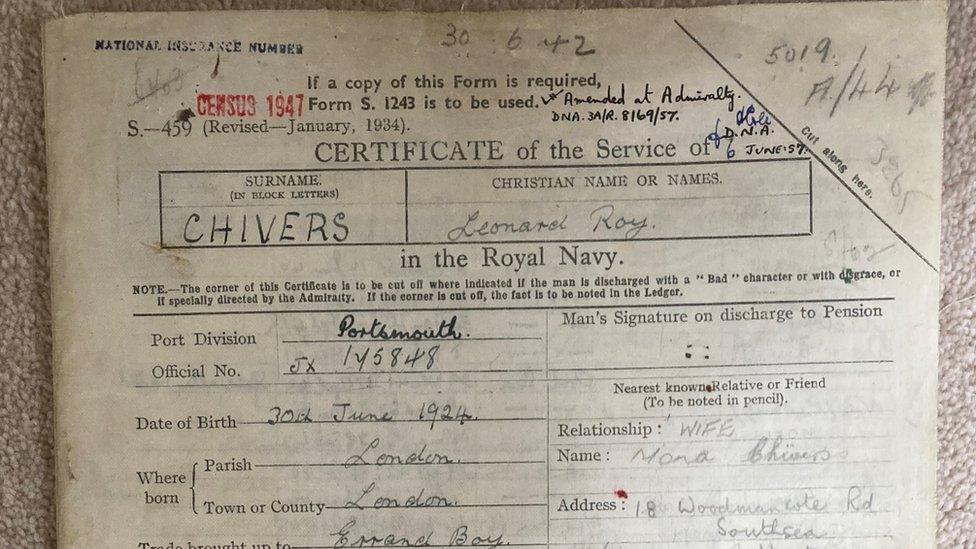
Mr Chivers went on to serve in the Royal Navy for 35 years
Mr Chivers joined the Royal Navy aged 15 and carried out initial training on the Isle of Man, which he described as "very thorough, very strict, at times harsh".
HMS Queen Elizabeth was his first ship, a battleship with a crew of 1,000 sailors, which he described as a "very prestigious, awesome" vessel.
While on board, Mr Chivers helped with the evacuation of allied troops from Crete, as well as regular patrols and convoy work.

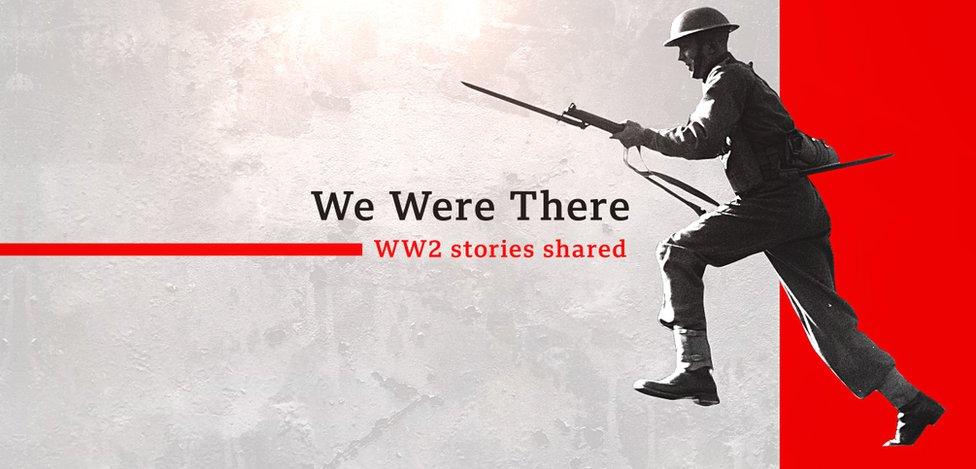
Ahead of the 80th anniversary of the end of World War Two, in 2025, the BBC is trying to gather as many first-hand accounts from surviving veterans as possible, to preserve them for future generations.
Working with a number of partners, including the Normandy Memorial Trust and the Royal British Legion, the BBC has already spoken to many men and women who served during the War - you can watch their testimonies here.

Soon after the sinking of HMS Barham, HMS Queen Elizabeth was badly damaged while docked in Alexandria Harbour.
Italian frogmen placed explosive charges under the ship, killing eight engine room staff.
Mr Chivers was then transferred to HMS Kipling, which was hit by a bomb in May 1942.
"The bomb landed very, very close to our 4in gun. I had a steel helmet on, I presume it must have come off because if it had been on, I wouldn't have got the burn on my head," he said.
"In a very, very short time came complete oblivion, complete oblivion for me, I was completely unconscious."
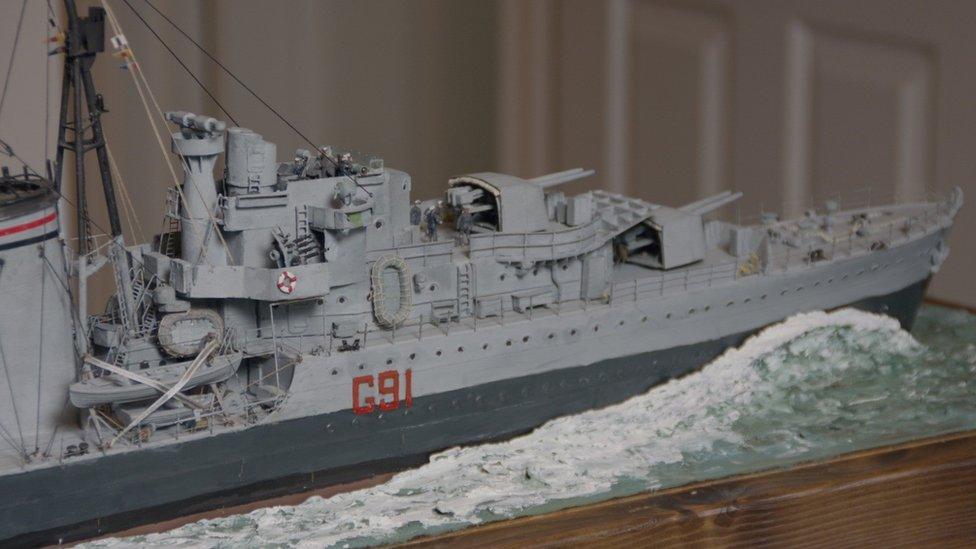
Mr Chivers has a replica model of the destroyer, HMS Kipling, which sank in the Mediterranean in 1942
He was pulled on board another destroyer, HMS Jarvis, and taken to a field hospital in Egypt, before being taken via a hospital ship to Durban in South Africa.
"I knew I had burns on my face and back, it hadn't set in that my spine was fractured. But it was a lot of pain for three weeks," Mr Chivers said.
Eventually, he returned home and received pioneering plastic surgery at Rooksdown House in Basingstoke, from Sir Harold Gillies - who was born in New Zealand and initiated the speciality of plastic surgery in Britain following his experiences in World War One.
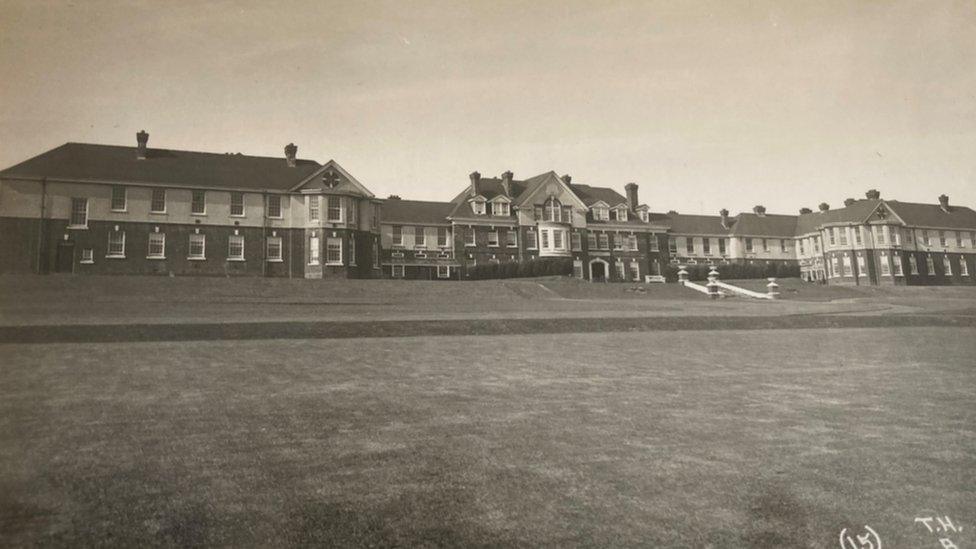
Mr Chivers was given plastic surgery by Sir Harold Gillies at Rooksdown House in Basingstoke
After recovering, he was back out to sea serving at a naval air station in India, before returning to Basingstoke where skin was grafted from his chest, to his face.
After the war, Mr Chivers continued to serve in the Royal Navy, eventually becoming an officer and retiring after 35 years of service in 1974.
Reflecting on his time in service, he said: "I count myself as one of the lucky ones."

Follow BBC South on Facebook, external, X, external, or Instagram, external. Send your story ideas to south.newsonline@bbc.co.uk, external.
- Published10 November 2022
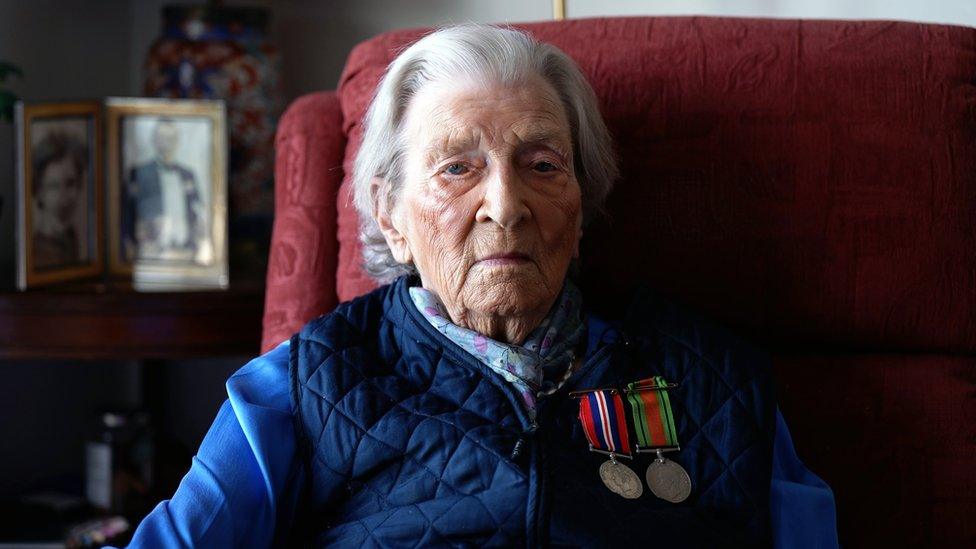
- Published13 November 2022
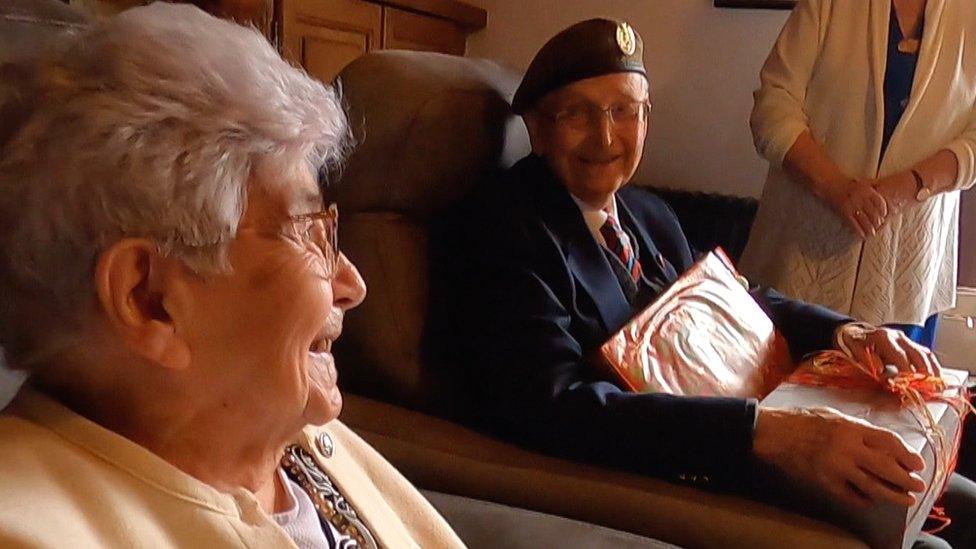
- Published11 November 2023
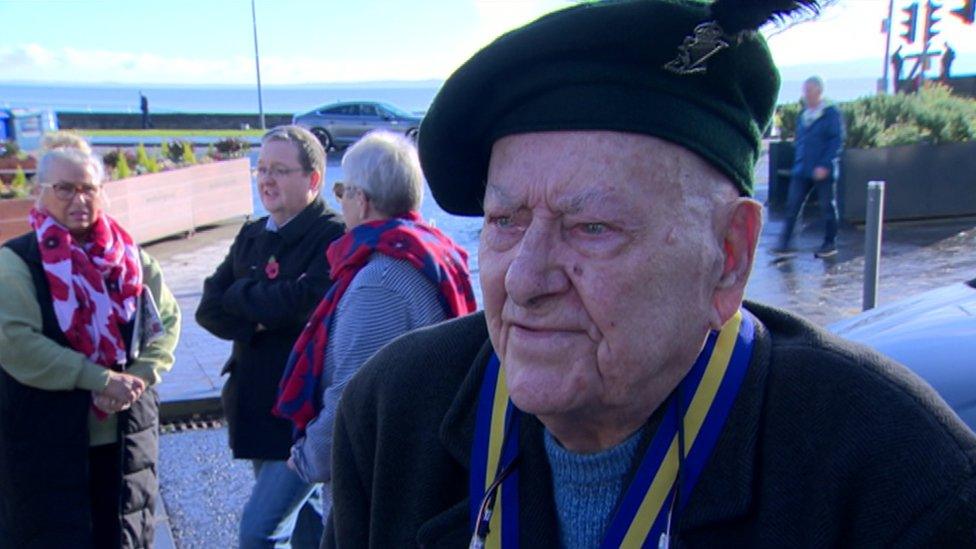
- Published10 November 2022
